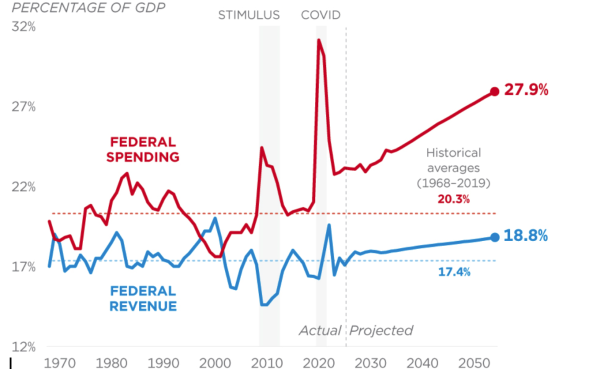On my Honor…
Even though students are constantly reminded of Westminster’s Honor Code Policies, honor violations still present a challenge to students and faculty alike. Statistics displayed during a September assembly held by the Honor Council and president Keith Evans shocked students with the sheer number of cases within each grade. A staple of the Westminster community, honor is one of the most integral and necessary aspects of equality and fairness at the school. This year’s council plans on reconsidering features of the Honor Code in order to decrease honor violations.
Part of what makes Westminster’s Honor Code unique is that many students and faculty define honor differently. Upper school president Cindy Trask believes that honor represents more than just an agreement between students and teachers. “The Honor code has existed at Westminster for a long time and is one of our oldest and most effective traditions,” said Trask. “I think that it’s based on the idea that your personal honor is your most cherished attribute. If we have a community at Westminster that’s really devoted to learning, which we are, a foundation of Honor has to exist so that we can thrive and be in harmony with each other.”
Some define honor as a result of Westminster’s competitive nature. “Honor is the capacity for a student to do the right thing when it comes down to crunchtime,” said prefect Hampton Maxim. “Most cheating is a result of the academic environment at Westminster. High school is definitely a stressful place.”
On top of the challenging curriculum at Westminster, students also choose to abuse honor due to the pressures of the college selection process. “There are lots of theories on why students students keep abusing the honor code,” said Solomon. “The college process and the perception of what colleges want greatly influences the system.”
Part of what causes violations is confusion over the definition of honor. “One of the things that I see here is that sometimes the school does not really make clear what the boundaries of Honor are,” said Trask. “I think that really educating students and saying ‘This is what the expectation is’ lies with the faculty and making sure that teachers have a clear process that they understand. If you reinforce the message consistently, students and faculty both hear it, and the number of cases will decrease.”
Additionally, teachers will have a substantial role in evaluating honor cases before they reach the Honor Council. “When a student is involved in more of a minor infraction, the Honor Council is still notified of the offense, but teachers have the opportunity to address the issue,” said Honor Council advisor Kay Solomon. “There’s more of an opportunity to get teachers involved early on instead of during the hearings.”
This new system will hopefully prevent future violations that would otherwise compromise the trust involved in agreeing to the Honor Code. “We were talking the other day about the relationship between teachers and students,” said prefect Jessica Lao. “We are trying to put in more protocol for teachers and students to prevent things. Some people are going to cheat no matter what, so the best we can do is prevent it from happening in the future.”
Despite the upcoming changes to the honor system, students will not only manipulate the system with outside resources, but also with new technology. “It’s so easy to get information now, from phones or watches,” said Trask. “The easier it is to get information, the easier it is to take advantage of that.”
During the honor process, students have their own advocates in the form of prefects. What makes Westminster’s honor code unique is the Honor Council, a select group of seniors that not only weigh in on cases, but also make many of the final decisions. “The prefects are incredibly thoughtful,” said Honor Council advisor Kay Solomon. “They are chosen for a reason. Everybody comes and contributes something significant to the discussion.”
In contrast to a teacher-led conference, the involvement of prefects enhances the student’s point of view. “The honor council is definitely an organization that’s looking out for the student body, not against it,” said Maxim. “We are really just regular people that care about representing students.”
These prefects are not only advocates, but also bring their individual perspectives to issues. “I feel like we are living in a community of learners where we are all making mistakes,” said Trask. “I never walk into a meeting with the prefects with a decision in my mind. I want to listen to the prefects and their recommendations, and we are going to talk through it together. Because it’s student-led, I don’t feel like I’m the final judge in the process.”
Ultimately, the council hopes that students will not only learn from their mistakes, but will bring honor into their daily lives outside of Westminster. “The idea is that you become an honorable person even when we remove the punishments,” said Lao. “It should apply to everything beyond school, like interactions with friends and clubs.”
Like Lao, Solomon agrees that honor reaches beyond assessments at Westminster. “If you take a shortcut, you aren’t going to be able to solve problems or communicate,” said Solomon. “If someone cheats their way through medical school and are operating on a patient, I certainly would not want to be that patient.”
The key to maintaining honor while decreasing violations is a cumulative involvement in implementing and repeating the Honor Code. “If you reinforce the message consistently, students and faculty both hear it, and the number of cases will decrease,” said Trask. “Violations will never truly go away.”
Honor is a process not only reliant on the bonds between students and teachers, but also on bonds between students themselves. Even though the council prepares to make changes to the honor system, students will always rely on each other in order to foster a healthy community of respect. “The only thing holding honor together is our collective trust in each other,” said Lao. “Honor is only as strong as we make it.”




